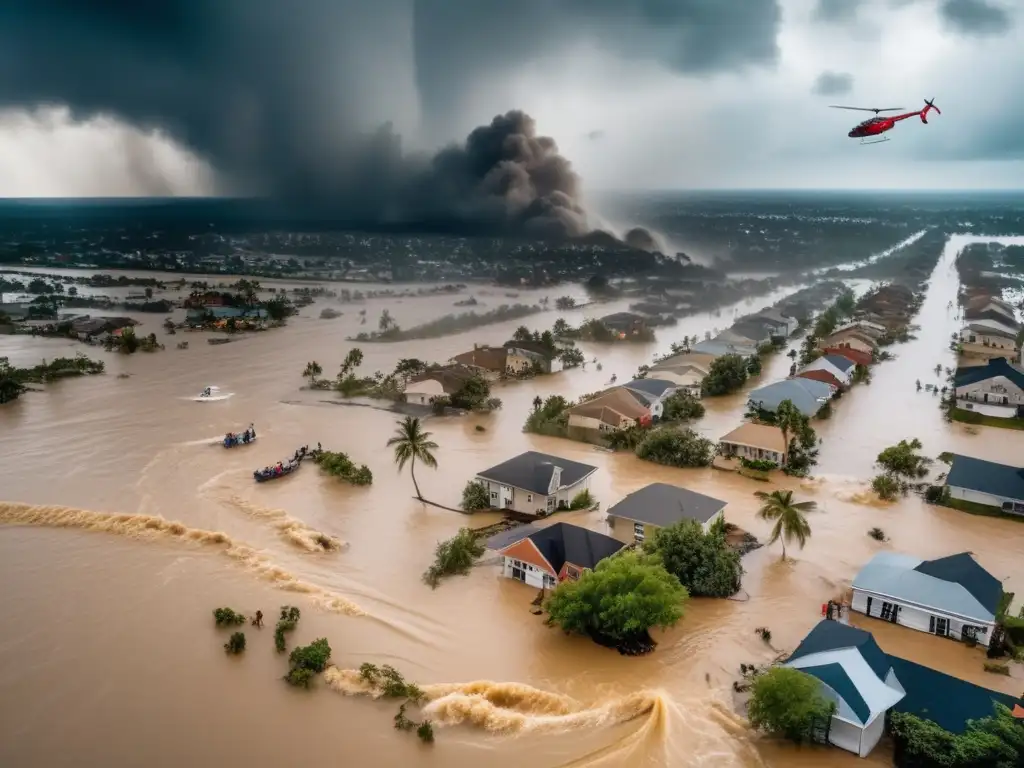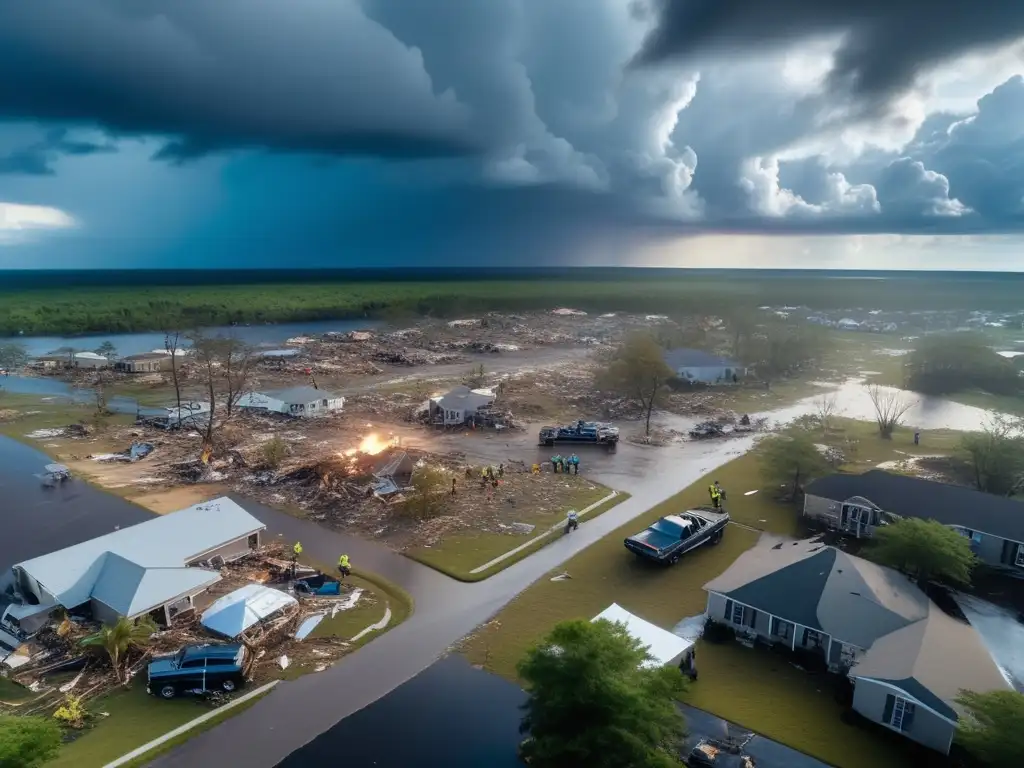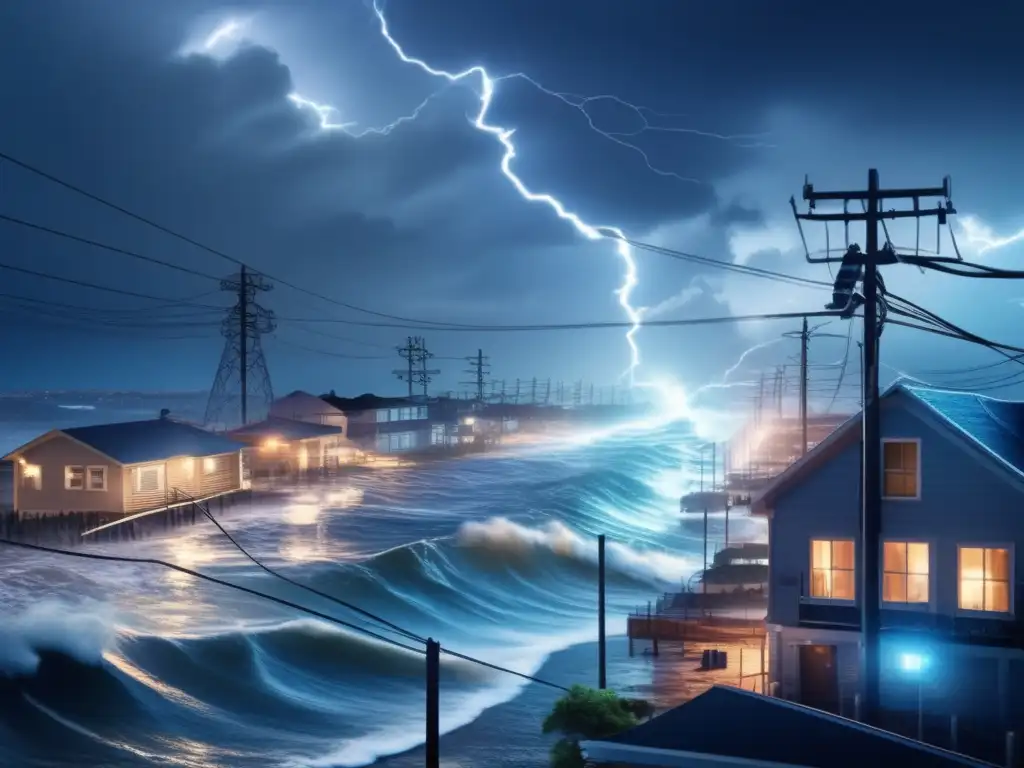Legal Implications And Policies Regarding Hurricanes

Legal Implications and Policies Regarding Hurricanes
Introduction
When a hurricane strikes, it can cause immeasurable damage and loss of life. However, the legal implications and policies surrounding hurricanes extend far beyond emergency response and recovery efforts. In this article, we will explore the various legal issues and policies that arise in the wake of a hurricane, including insurance claims, government aid, and building codes.
Insurance Claims

Homeowner's Insurance Policies
One of the most pressing concerns for homeowners in hurricane-prone areas is whether their insurance policies will cover the damage caused by a storm. Many homeowner's insurance policies do cover hurricane damage, but policyholders should carefully review the terms of their policies to ensure that they are adequately covered. It is also important to note that flood damage is not typically covered under standard homeowner's insurance policies and requires separate coverage.
Business Interruption Insurance
In addition to property damage, hurricanes can also cause significant financial losses for businesses. Business interruption insurance coverage may help compensate businesses for lost income, ongoing expenses, and extra expenses incurred as a result of the storm. However, determining whether or not a business has sustained losses and calculating those losses can be complex, and policyholders may need to work closely with their insurance companies to file successful claims.
Public Adjusters
Public adjusters are licensed professionals who work on behalf of policyholders to help them navigate the claims process and ensure that they receive fair compensation for their losses. While hiring a public adjuster can be expensive, it can also be beneficial for policyholders who are struggling to understand their rights and communicate effectively with their insurers.
Government Aid

FEMA Assistance
Following a major disaster like a hurricane, the Federal Emergency Management Agency (FEMA) may offer financial assistance to individuals and businesses that have sustained losses. However, this assistance is typically only available to those who do not have insurance or whose insurance does not cover all of their losses. Additionally, FEMA assistance may not be enough to fully restore a person's property or business to its pre-disaster condition, and applicants must meet certain eligibility requirements to receive aid.
Small Business Administration Loans
The Small Business Administration (SBA) also offers low-interest loans to homeowners, renters, and businesses that have suffered losses due to a disaster. These loans can be used to repair or replace damaged property, and businesses can use the loans to cover working capital expenses. However, like FEMA assistance, SBA loans must be paid back and may not be sufficient to cover all of a person's losses.
Community Development Block Grant Program
The Department of Housing and Urban Development's Community Development Block Grant (CDBG) program provides grants to states and localities for disaster recovery efforts, including rebuilding and repairing damaged homes and infrastructure. However, these grants may take time to disburse, and states and localities must submit comprehensive plans for rebuilding and recovery before they can receive funding.
Building Codes

Hurricane Resistant Building Codes
In hurricane-prone areas, building codes require certain construction standards and materials to make buildings more resistant to high winds and flying debris. These standards may include reinforced walls, impact-resistant windows and doors, and storm shutters. However, compliance with building codes is not guaranteed, and some older buildings may be grandfathered in and exempt from certain requirements.
Insurance Discounts
In some states, homeowners and businesses that comply with hurricane-resistant building codes may be eligible for insurance discounts. For example, Florida offers discounts on homeowner's insurance policies to those whose homes meet certain construction standards. These discounts can help offset the cost of upgrading a building's structural elements and may encourage property owners to invest in hurricane-resistant construction.
Hurricane Retrofit Programs
Some local and state governments offer retrofit programs to help property owners upgrade their buildings to meet hurricane-resistant standards. These programs may provide financial assistance or low-interest loans, and they may also offer guidance and resources to help property owners make informed decisions about retrofitting their buildings.
Frequently Asked Questions

-
Does homeowner's insurance cover hurricane damage?
Most homeowner's insurance policies do cover hurricane damage, but policyholders should review their policies carefully and ensure that they have adequate coverage.
-
What should I do if my business suffers losses due to a hurricane?
Business owners should contact their insurance companies as soon as possible and consider hiring a public adjuster to help them navigate the claims process.
-
Am I eligible for FEMA assistance if I have insurance?
You may be eligible for FEMA assistance if your insurance does not cover all of your losses, but you must meet certain eligibility requirements.
-
Can I get assistance to upgrade my home or business to meet hurricane-resistant building codes?
Some local and state governments offer retrofit programs that provide financial assistance or low-interest loans to help property owners upgrade their buildings.
-
Do building codes guarantee that a building will be able to withstand a hurricane?
No, compliance with building codes is not guaranteed, and some older buildings may be exempt from certain requirements.
Conclusion
When a hurricane strikes, the legal implications and policies that arise can be overwhelming. Homeowners and business owners must navigate insurance claims and government aid programs, while local and state governments must grapple with rebuilding and recovery efforts. Building codes can help mitigate the damage caused by hurricanes, but compliance is not guaranteed. By understanding the legal issues and policies surrounding hurricanes, individuals and communities can be better prepared to face the challenges that arise in the wake of a disaster.
For those living in hurricane-prone areas, it is essential to review insurance policies and take steps to prepare for potential storms, including upgrading buildings to meet hurricane-resistant construction standards. For the general public, understanding the legal implications and policies regarding hurricanes can help raise awareness about the need for disaster preparedness and recovery efforts.
We hope that this article has provided valuable information about the legal issues and policies surrounding hurricanes. Please share your thoughts and questions in the comments section, and consider subscribing to hurricaneinsider.org for more hurricane-related content.
Additional Resources

For more information about the legal implications and policies regarding hurricanes, please visit the following resources:
 The Unsung Heroes: Volunteers In The Aftermath Of Hurricanes
The Unsung Heroes: Volunteers In The Aftermath Of Hurricanes The Pioneers Of Hurricane Research And Tracking
The Pioneers Of Hurricane Research And Tracking Infrastructure Vulnerabilities During Hurricanes
Infrastructure Vulnerabilities During HurricanesIf you want to discover more articles similar to Legal Implications And Policies Regarding Hurricanes, you can visit the Basic knowledge about hurricanes: category.
Leave a Reply

Articulos relacionados: